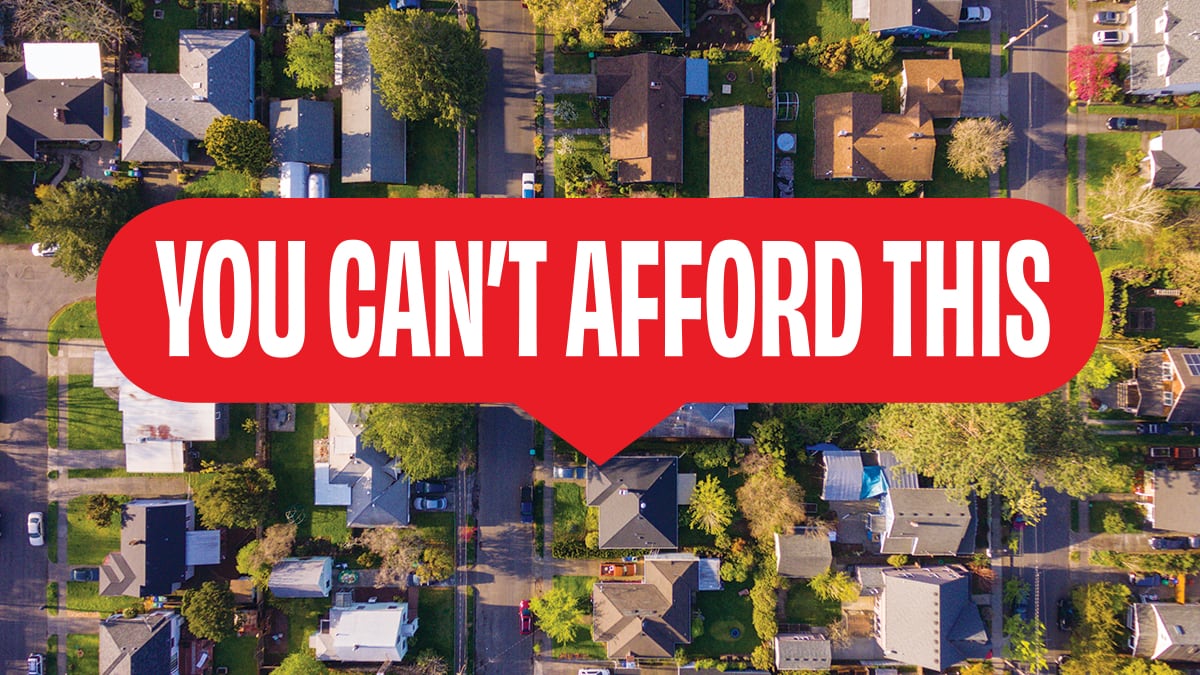Last month, new census data revealed something that hadn’t been seen in a decade: More people left Portland than moved here.
For some observers, this confirmed their hunch that residents were fleeing a city turned toxic. High taxes, homeless camps, a murder wave—anybody who could get out soon would. Will the last one to leave Rip City please turn out the lights?
But a second glance suggests another explanation.
Plenty of people want to live in Portland. They just can’t afford a home here.
A recent study of U.S. Bureau of Economic Analysis data shows Portland is the 12th-least affordable major city in the nation. A big factor? Housing costs.
In January, real estate advisers Marcus & Millichap said Portland’s single-family home prices were “surging to over six times the median household income, above the same ratio for the nation as a whole.” The result? More people who want to buy will have to rent, and the rental vacancy rate will shrink to 2.8% by year’s end.
“High housing costs are still a huge concern,” says Josh Lehner, a state economist. “If a place is too expensive, then when somebody makes the decision to move, they no longer consider Oregon or Portland and maybe go down the list to a less expensive place.”
That trend only intensified in the past year, as millions of Americans (and, anecdotally, plenty of Portlanders) realized they didn’t have to pay big-city housing prices to live near executive-track jobs. Perhaps more than anything else, remote work is reshaping our cities.
Hollowing them out, actually (see chart below). While Portland saw its population shrink by less than a percentage point in 2021, the nation’s two most expensive metro areas, New York City and San Francisco, saw dramatic exoduses—each lost nearly 7% of their populations in a year.
This week’s cover package is devoted to helping Portland avoid that fate. While we’re at it, we’d also like to keep you from paying too much.
In the following pages, WW has sought to answer your questions about finding a home you can afford.
Looking for a house in the suburbs? (You can admit it: A lot of people are.) We went comparison shopping, and found the bedroom communities that are still bargains (page 16).
Wondering why Portland can’t seem to build enough housing supply to keep costs down? We examined the red tape that has prevented one developer from building affordable units and floated five ideas for erecting a cheaper apartment.
Just hoping you can make next month’s rent? We’ve provided a list of people and strategies to help you stay in your apartment.
If this city is to emerge from its recent struggles, it will need the new energy and ideas that drove its growth over the past 20 years. That’s only possible if people find places they can afford to live. Portland has no greater challenge.
The Price Is Wrong
Portland saw its population flatline in 2021. But the city’s contraction was modest in comparison to the flight from U.S. metro areas where homes are most expensive. Here’s how Multnomah County compares with the counties that saw significant population declines last year—and how our housing costs compare.
| Population decline: | Average home price: | Households with severe cost burden: | |
|---|---|---|---|
| New York County (New York City) | 6.9% | $746,354 | 19% |
| San Francisco County | 6.7% | $1.57 million | 16% |
| Suffolk County (Boston) | 3.3% | $718,756 | 22% |
| Los Angeles County | 1.8% | $944,651 | 24% |
| Multnomah County | 1.5% | $574,291 | 17% |
| Miami-Dade County (Miami) | 1.4% | $477,471 | 26% |
Sources: U.S. Census Bureau, Zillow, University of Wisconsin Population Health Institute
Lowering Portland’s Housing Costs
Fleeing Portland? We Have Bad News About Home Prices in Surrounding Bedroom Towns.
The Pop Blocks on Sandy Are in Limbo After a Fight With the State That Only Kafka Could Love
Portland’s New Homes Are Too Expensive. Here Are Five Ways to Make Them Cheaper.
As a Portland Renter in a Squeezed Market, How Do I Stay Where I’m Living?

